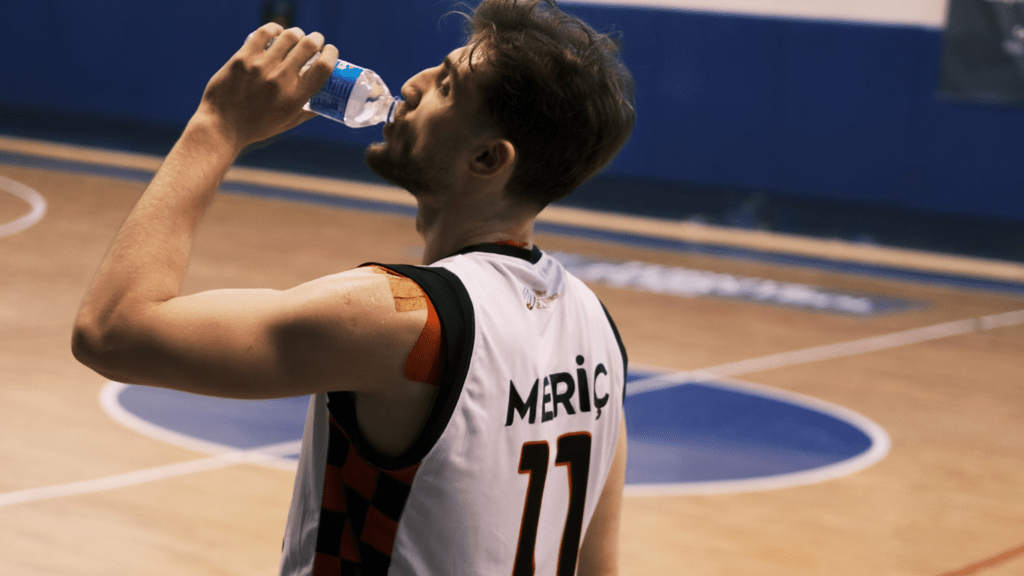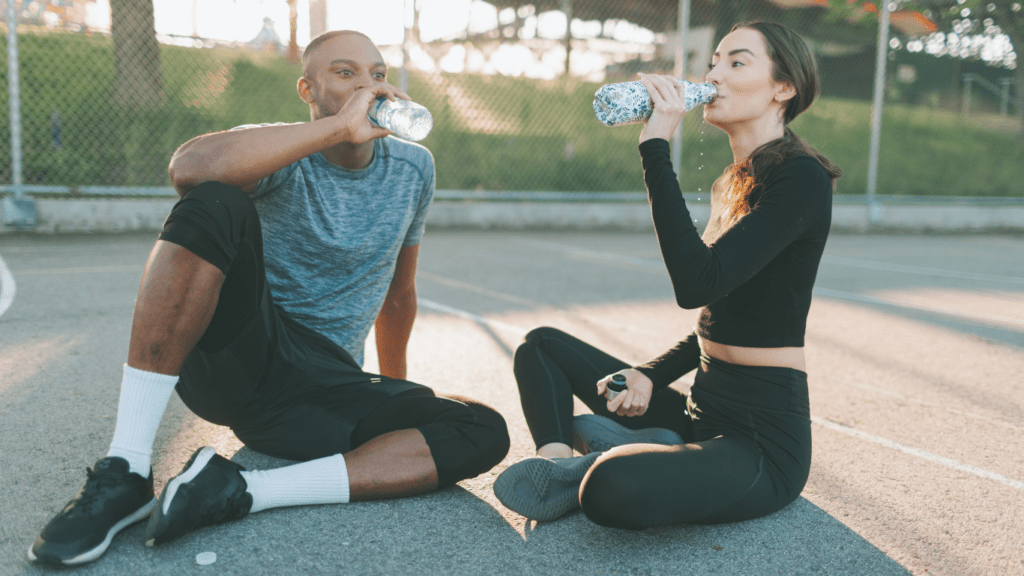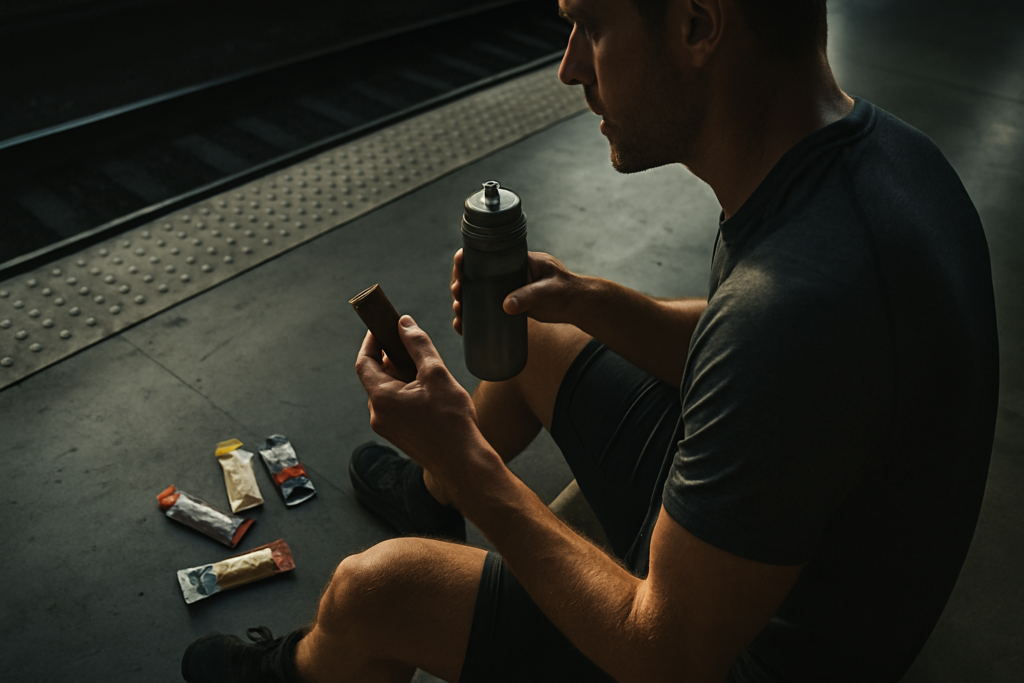Understanding Hydration in Sports
Hydration directly impacts an athlete’s performance levels during sports activities. Water serves as the body’s cooling system, regulating temperature through sweat. During exercise, fluid loss occurs rapidly; the body sweats to cool down. Inadequate hydration impairs body temperature control and increases heart rate, which affects overall performance.
Electrolytes support various physiological functions in sports, such as conducting nerve impulses and maintaining muscle contractions. Sodium, potassium, and magnesium are crucial electrolytes that balance bodily fluids. When athletes sweat, they lose both water and electrolytes. If not replenished, this imbalance can lead to:
- cramping
- fatigue
- decreased endurance
Proper hydration strategies optimize performance. Consuming water and electrolyte-rich beverages before, during, and after activities ensures that athletes meet their hydration needs. Monitoring urine color and thirst levels is a simple way to gauge hydration status. For personalized hydration plans, consulting with sports nutritionists or using wearable tech offers data-driven insights.
In sports, recognizing the signs of dehydration is vital. Symptoms such as dizziness, headaches, and dry mouth signal the need for immediate fluid intake. Quick action helps prevent further complications. Textbook approaches recommend aiming for a balanced intake tailored to individual activity levels and environmental conditions.
The Science Behind Water and Electrolytes
Hydration doesn’t just quench thirst; it’s a vital aspect of athletic performance. Understanding the interplay between water and electrolytes offers athletes an edge.
Importance of Water
Water acts as the body’s cooling system during physical activity. It regulates temperature and transports nutrients to cells. Sweat, which consists mainly of water, evaporates from the skin to release heat. Without adequate water, the body struggles to maintain a stable core temperature. Dehydration triggers symptoms like fatigue and dizziness, impairing performance and increasing injury risk.
Role of Electrolytes
Electrolytes like sodium, potassium, and magnesium are essential for muscle and nerve function. They maintain fluid balance and support cellular activities. Sodium and potassium facilitate muscle contractions and nerve impulses, crucial for coordination and strength. Magnesium plays a part in energy production and muscle relaxation. If electrolytes are imbalanced, athletes experience cramping and fatigue, hindering endurance and recovery. Replenishing them is essential, especially after intense exercise or in hot conditions.
Hydration Hacks for Athletes

Athletes can gain a competitive edge by optimizing hydration. Effective strategies before, during, and after activities ensure peak performance and recovery.
- Pre-Workout Hydration Tips
I recommend drinking 16-20 oz of water 2-3 hours before exercise. This helps maximize water absorption and minimizes bathroom breaks during workouts. For intense workouts, consume a sports drink containing sodium and potassium to preload electrolytes.
- Maintaining Hydration During Exercise
Sip 7-10 oz of fluid every 10-20 minutes during activity. If activities exceed one hour, I advise using electrolyte drinks to replenish lost minerals. Watch for thirst signals and proactively manage intake to balance exertion and fluid levels.
- Post-Workout Rehydration Strategies
Replenishing fluids immediately after exercise is crucial. I typically suggest 16-24 oz of water for every pound of weight loss during workouts. Combining water with carbohydrates and sodium in recovery beverages aids fluid retention and muscle recovery. Consider monitoring weight before and after workouts to tailor rehydration precisely.
Impact of Proper Hydration on Performance
Proper hydration significantly boosts athletic performance by optimizing physiological functions. Adequate water and electrolyte intake ensures athletes perform at their peak.
Enhancing Athletic Output
Hydration enhances athletic output by maintaining blood volume and efficient oxygen transport. This sustains energy levels and improves endurance during prolonged activities like marathons and triathlons. For example, maintaining hydration helps delay fatigue by lowering the perceived exertion and stabilizing heart rate. Electrolytes support muscle contractions and reduce the risk of cramps, allowing for a more sustained athletic output.
Reducing Risk of Injury and Fatigue
- Hydration reduces the risk of injury and fatigue by regulating body temperature and cognitive function.
- Sufficient fluid intake prevents overheating, minimizing the likelihood of heat-related injuries like heat exhaustion or stroke.
- Dehydration slows reaction times and hinders coordination, increasing injury risk.
- By replenishing electrolytes, athletes can prevent muscle fatigue and weakness, which helps sustain performance intensity and reduces injury occurrences.
Common Mistakes and How to Avoid Them
Athletes often overlook critical hydration aspects, which can negatively impact performance. Recognizing and avoiding these common mistakes helps optimize hydration strategies.
Overhydration Issues
Overhydration dilutes essential electrolytes, resulting in hyponatremia, a condition where sodium levels drop dangerously low. Symptoms include nausea, confusion, and, in severe cases, seizures. To prevent overhydration, I avoid excessive water intake, particularly before, during, and after exercise—monitoring fluid consumption is key. I track sweat loss and match fluid intake accordingly, ensuring a balance between hydration and electrolyte replenishment.
Ignoring Electrolyte Balance
Neglecting electrolytes leads to muscle cramps and fatigue. Sodium, potassium, and magnesium are crucial for muscle and nerve function. When I sweat excessively, especially during long-duration activities, replacing lost electrolytes becomes essential. I use sports drinks or supplements containing these electrolytes to maintain balance. Timing is vital: consume electrolyte-rich solutions during and after strenuous activities to restore optimal levels.





